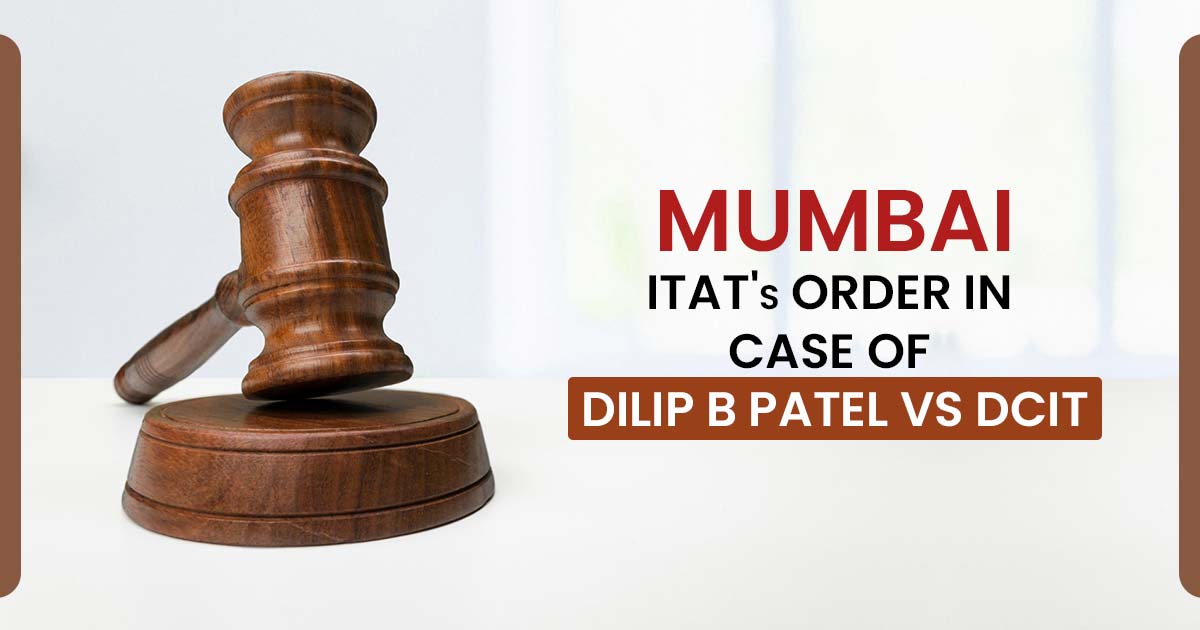
The assessment order is been cancelled by the Mumbai bench of the Income Tax Appellate Tribunal (ITAT) without recording valid satisfaction before issuing notice under Section 153C of the Income Tax Act, 1961.
When a search was performed by the council the taxpayer Dilip B Patel was not searched. But an investigation was performed on the premises of Shri Vinod Faria & Shri Milan Dalal dated 30.05.2008 and based on that allegation of the determination of specific incriminating materials against the taxpayer from the premise of the investigated persons. Under section 153C of the Act, against the taxpayer, the proceedings were executed.
Without first creating requisite satisfaction as mandated under Section 153C of the Income Tax Act, AO finished the assessment proceedings.
Aggrieved from the order the taxpayer has filed a petition to the CIT(A). The petition of the taxpayer gets dismissed by the CIT(A). Accordingly, the taxpayer filed a petition to the tribunal.
Read Also: Mumbai ITAT Directs Authority to Delete Penalty U/S 271(1)(c) for Bona Fide Mistakes
At the time of the adjudication Pavan Ved, the taxpayer’s counsel claimed that without forming satisfaction as needed under Section 153C of the Income Tax Act AO issued the notice.
Therefore no “valid satisfaction” was formed by the AO before issuing notice under Section 153C of the Income Tax Act and hence the issuance of notice under Section 153C of the Income Tax Act and following framing of assessment under Section 153(A)/143(3) of the Income Tax Act were invalid.
The order of lower authorities is been sustained by Ankush Kappor, the Department representative.
AO before issuing notice under Section 153C of the Income Tax Act had not seized the jurisdiction granted under Section 153C of the Income Tax Act by not recording his “satisfaction” as mandated under Section 153C of the Income Tax Act, the tribunal noted.
However, the taxpayer has not been searched under Section 132 of the Income Tax Act or requisitioned under Section 132.
AO without fulfilled valid satisfaction started the proceedings. He has not referred to any incriminating material concern to the taxpayer which was seized/ unearthed from the searched person’s premises.
The bench comprising Aby T. Varkey, (Judicial Member) & S Rifuar Rahman, (Accountant Member) post examining the submission of both parties, followed that AO had not recorded proper satisfaction before issuing the notice to the taxpayer under Section 153C of the Income Tax Act.
Hence under Section 153C of the Income Tax Act, AO did not have requisite jurisdiction to issue notice to taxpayers.
| Case Title | Dilip B Patel V/S DCIT |
| Case No.:- | I.T.A. No. 354/Mum/2012 |
| Date | 30.01.2024 |
| Assessee By: | Shri Pavan Ved |
| Counsel For Respondent | Shri Ankush kappor (DR), Ms. Vranda U Matkari (Sr. AR) |
| Mumbai ITAT | Read Order |